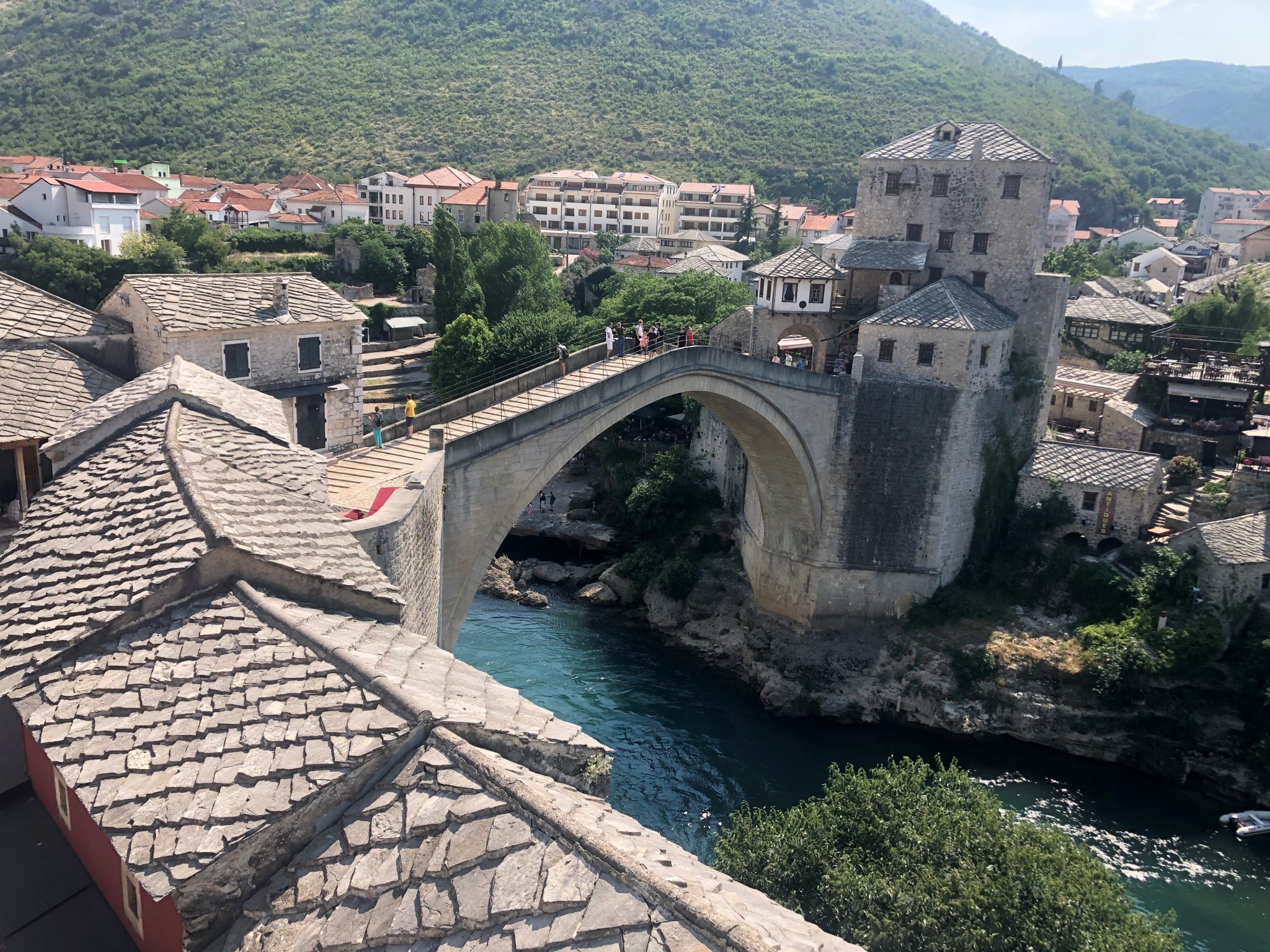On December 20, Bosnia and Herzegovina’s (BiH) ethnically divided city of Mostar will hold its first local elections in over a decade. A requirement for the initiation of European Union (EU) accession negotiations, elections in Mostar are key to the country’s democratic development and European alignment.
Mostar, now a tourist destination with more than 100,000 citizens, was among the cities most devastated by the 1992 Bosnian War. In the interethnic conflict’s early days, Bosnian Croats and Bosniaks were allied against ethnic Serb forces; however, as the political situation shifted, Croats and Bosniaks eventually faced off over Mostar and other areas. The fighting in the city ultimately resulted in thousands either dead or displaced and the destruction of several religious and cultural monuments.
Despite the city’s growth since the 1990s, Mostar still reflects the political antagonisms that existed during the war and fueled years of division. As such, Mostar remains ethnically divided, with mostly Catholic Bosnian Croats residing in the west and Muslim Bosniaks in the east.
As a result of these divisions, Mostar has become the only European city that has failed to hold municipal elections in more than a decade, due to its inability to unite around the implementation of reforms that ensure balanced power-sharing in the city. In 2010, BiH’s Constitutional Court ruled that Mostar’s power-sharing structure was unconstitutional and unbalanced, given that it allocated the same number of city councilors to each municipality despite their varying population sizes. Before conducting elections to choose a new mayor and councilors, the city needed to negotiate and implement reforms that address the constitutional court’s ruling, but its inability to reach a political consensus has made this impossible.
In response, a Mostar citizen and politician brought an appeal to the European Court of Human Rights (ECHR) in 2018 that claimed the city’s failure to hold elections fundamentally violated its constituents’ political rights. As a result, the ECHR condemned BiH for ignoring the constitutional court’s power-sharing ruling, which would have subsequently enabled municipal elections in Mostar. Ultimately, the ECHR gave authorities six months to amend the legislation for elections to take place, leading to the decision to hold these historic elections in December 2020.
In recent years, Mostar has become a major point of contention among Bosniak and Croat leaders, affecting not only BiH’s democratic development, but its European aspirations as well. In fact, the country’s EU integration hinges on its ability to organize democratic elections this year – one of the 14 key accomplishments needed to open BiH’s EU accession negotiations as listed by the European Commission. The groundbreaking nature of the Mostar case has attracted the attention of a variety of international observers, including IRI’s Beacon Project. With the goal of analyzing divisive rhetoric and identity politics, the Beacon Project plans to monitor political speeches throughout the campaign. IRI also plans to continue to provide support to political party members from the greater Mostar area through cross-party coalition building activities and its Advanced Leadership in Politics Institute.
After 12 years without local elections, election day in Mostar will certainly be a cause for celebration for the its citizens, as their voices will finally be heard at the local level. This momentous day is not just a milestone for Mostar, though, but a major step in BiH’s democratic development and alignment with European institutions – a bright spot to conclude 2020.
Top